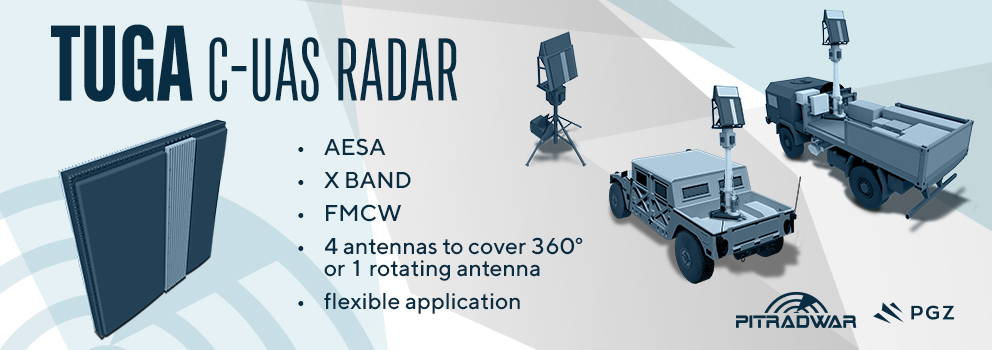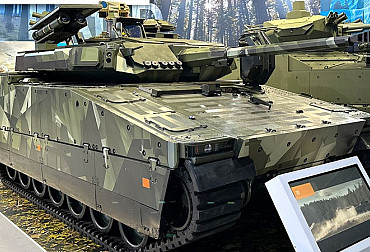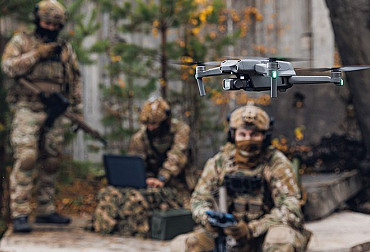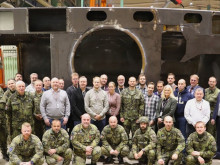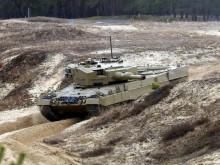The Defence Committee discussed STEM research on security and defence in the Czech Republic and communication between the army and the Ministry of Defence
Yesterday's meeting of the Parliamentary Defence Committee was emotional. In addition to the standard items, the committee also dealt with the STEM survey on security and defence in the Czech Republic from the public's point of view and, in particular, information on the method of coordinated communication between the General Staff of the Czech Armed Forces and the Ministry of Defence. This item was proposed by Pavel Růžička, Vice-Chairman of the Committee.
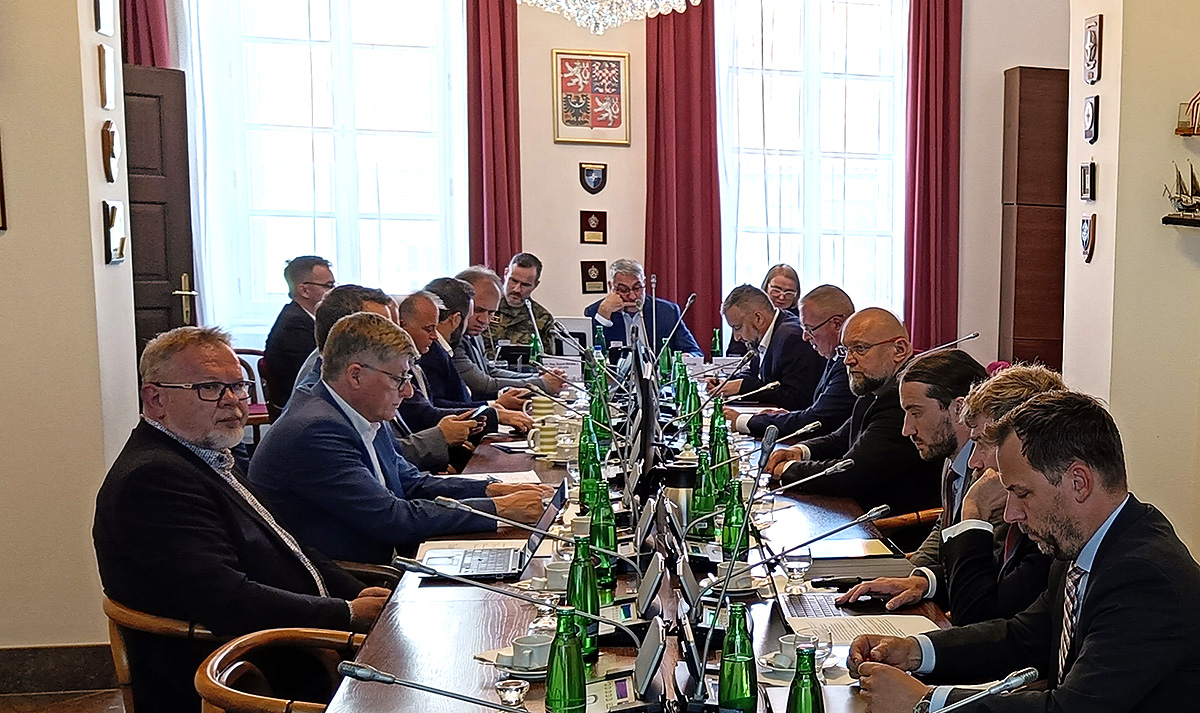
STEM research results
The introductory presentation by the Institute of Empirical Research of the STEM agency drew the attention of individual members of the Committee to the fact that the decline in trust in the Czech Army is related to political preferences. Whereas in 2020 it did not matter who respondents voted for, as the Army was trusted by everyone across the political spectrum, there are now differences of tens of percentage points in trust in the Army among supporters of the currently strongest political parties. STEM tracks trust in the Army and other important state institutions over the long term. Trust in the army has been growing steadily since the 1990s. However, since 2020, according to the study, we have been observing a gradual downward trend in trust in the army. At that time, the army was trusted by a record 78% of the population, but trust has fallen, dropping to 62% in January. In recent years, the army has become one of the big topics of public debate, but at the same time as this trend, trust in this institution has begun to fall slightly. Rather than an overall decline, the army is becoming a polarising issue.
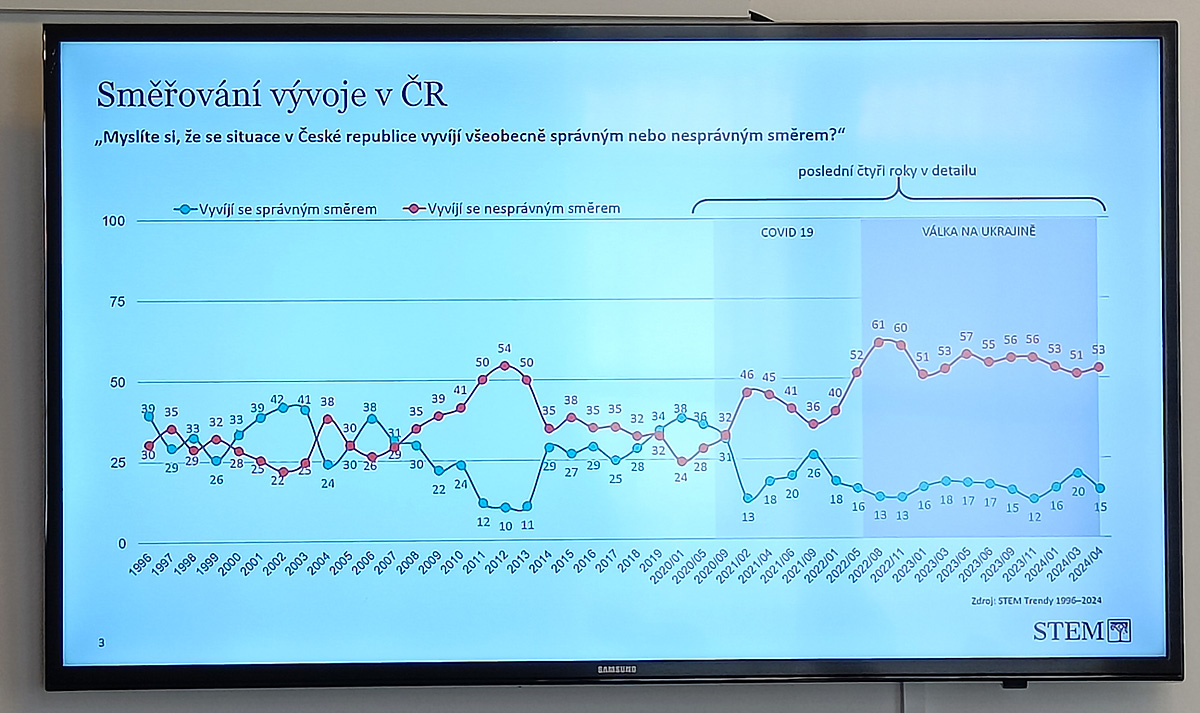
In a debate with members of the committee, STEM representatives said, among other things, that trust is not just a hypothetical construct. "We are examining trust in a number of different institutions because trust is a basic prerequisite for authority and credibility," STEM director Martin Buchtík explained to the MPs, recalling that the army has helped the Czech public many times in the past, for example during the COVID, during floods, when clearing debris after a tornado and in other situations. "This cooperation between the civilian and military sectors has worked not only because it has the necessary equipment, but also because people trust and respect the army. If the military loses that trust, we may have a serious problem in future crises because people simply will not respect the military's instructions. And it is not just about crises. Without trust in the military, it will be difficult for the military to meet recruitment targets or get the necessary civilian cooperation," said the STEM director.
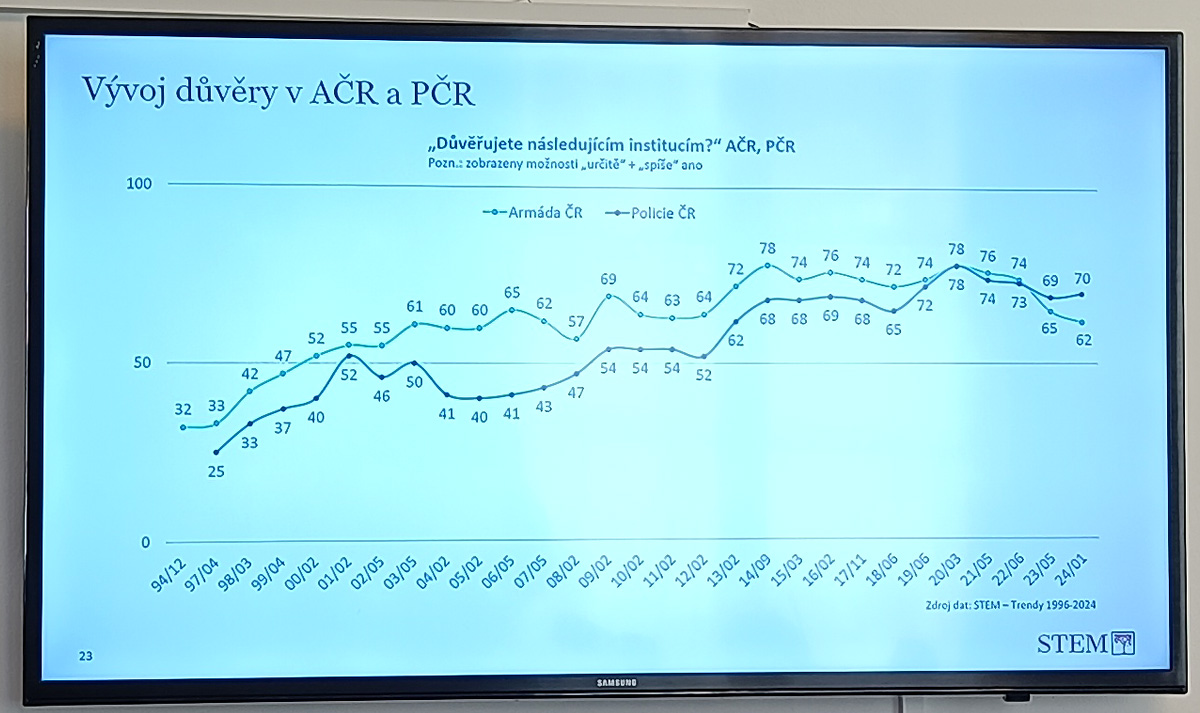
Although the decline in trust in the military is clear, it is good to remember that it is still one of the most trusted institutions in the country. It is currently preceded by the Police and regional and municipal authorities. Behind the army are important institutions, such as the government and the Chamber of Deputies, which have significantly lower levels of trust.
Communication
Another item at yesterday's Committee meeting concerned communication between the Ministry of Defence, the General Staff and the Army. The topic was proposed by Pavel Růžička, the vice-chairman of the committee, who told CZ DEFENCE that he has been observing a split of opinion on the X network between the Czech Armed Forces and the Ministry of Defence for some time. Růžička is similarly critical of the personal profiles of the Chief of General Staff and other soldiers, which he says comment on a range of political topics. "I want to ask what rules apply within the Ministry of Defence," Růžička said on the subject. He is also bothered by the fact that the Chief of the General Staff is disclosing information on his private X account that he believes should not be disclosed. "I am referring, for example, in his first briefing to information about alliance exercises. I don't think that should be part of a private communication at all. If only for the reason that the Russians are watching all the information. And if this applies to us as MPs and we are warned by the army, then it would be good, of course, for the army command to follow this advice," said the deputy chairman of the committee, who said it was high time to create new norms in the field of army communications, which have long been exhausted due to their age (2005). At the same time, MP Růžička said that in his opinion, this problematic communication is also perceived by Defence Minister Jana Černochová and therefore he expects changes in the settings and clear solutions.

In response to Růžička's criticisms, Defence Minister Jana Černochová said that the current setup of the Ministry of Defence's communications is regulated primarily by two internal regulations, namely Defence Ministerial Order No.17/2005 and Defence Ministerial Task Sheet No.517 of 2010. "According to these documents, the Ministry of Defence, and therefore the army, is the gestor of the ministry's communication. For those who would think that the army is built outside the system, this is not the case. By the constitution, there is a civilian management of the ministry of defence, it is the minister or the minister, and therefore, the gestor of communication of the ministry of defence - that is, the army - is the department of communication," the minister said.
She also added during her speech that she had not banned the Chief of General Staff from his new communication through the X network. "In response to the Chief of the General Staff's request to set up an account, I expressed concern that the establishment of this account would lead to the fragmentation of the Ministry of Defence's communication and could lead to the dilution of information towards soldiers and the public," said Cernochová, adding that the ministry had mapped the state of the army's communication and that there were almost one hundred and ninety army profiles across all social networks. "You can hear well 190 profiles. In addition, the ministry has registered 129 third-tier domains and one main website on a second-tier domain," the minister said.
It is because of the alleged fragmentation of communication that the said accounts and websites would be reduced over time. At the same time, work is also underway to amend the said order of the Defence Minister to bring it up to current standards and reflect current communication trends and the existence of a number of new communication platforms. "The aim of this measure is to make the Department's communications truly coordinated, consistent and effective, and trustworthy. And the high fragmentation of the ministry's accounts has exactly the opposite effect," said Minister Černochová.
The Chief of the General Staff of the Czech Armed Forces, Lieutenant General Karel Rehka, defended the soldiers' communication, saying that soldiers have the right to their opinion and communication. "As a leader and as a person who leads an organisation and who is primarily supposed to motivate and inspire people to perform tasks and improve this organisation, one of the key tools is communication. That's just the way it is, that's management theory. We're in the twenty-first century, memos and bulletin boards just don't work anymore. I can send a letter to the troops at any time. There's nothing stopping me. Twitter (network X) is just a different channel. I work with the younger generation who are on social media, they don't go read bulletin boards, so I don't understand what's incomprehensible about it," said General Rehka on the subject. He also pointed out the importance of intensive communication, "If we don't fill the information space, someone else fills it. That is why I also think that it is not worth forbidding soldiers to communicate, but it is worth directing that communication in the right direction," the Chief of General Staff added.
Michaela Zacharová, the director of the Ministry of Defence's Communication Department, concluded by saying that, based on the number of profiles and domains, it had been decided to reduce these accounts and was also preparing an amendment to Order 17/2005.
The issue of communicating security and defence issues, for example in relation to the army, the definition of security risks, etc., is a topic that politicians, and in particular parliamentarians, must address intensively. The issue of security and defence is one of the cornerstones of the state, and a substantive debate and its organisation is the key to the resilience of the citizens of the Czech Republic. In this context, we asked Members of the Defence Committee what politicians should do to ensure that the public starts to take the defence and security of the Czech Republic seriously?
Lubomír Metnar (ANO), Chairman of the Committee
This is a very difficult question, as public opinion is influenced by a number of factors and in this day and age of almost unlimited social media it is becoming increasingly difficult to navigate this environment. The task of Czech and world politicians should be consistency and predictability in their foreign policy positions, restraint in making rash statements without verified facts, and transparency in matters of billion-dollar purchases of military equipment, when the aftertaste of corruption cases of the past lingers in the memory of many. Above all, they should try to improve the communication of the ministry, which I have long criticised.
Jan Hofmann (ODS), Vice-Chairman of the Committee
First and foremost, they should stop questioning the importance of defending our country and the NATO area. We often hear that the war conflict will not move to our territory, and often parties such as the Communist Party of Czechoslovakia or the SPD and others base their claims on the words of President Putin, who publicly declares that he is not interested in the NATO area and that it is therefore useless to deal with defence at all. After all, just as three days before the attack on Ukraine, President Putin declared that no attack against a neighbouring country was planned. The Chief of the General Staff is even being attacked by politicians for saying that he is prepared for a military conflict, even though he is right and absolutely right. This questioning is more political marketing, which may bring some percentage gains in the short term, but in the long term it brings about a divided society and negative sentiments in society directed at the military, among others. So what should politicians do? Take a cue from countries where questioning the military as a component of ensuring a safe and free country by any party is taboo. All political actors have the goal of keeping the army at a high level to ensure peace in their country and in Europe, as is the case in France, Poland or Israel.
Stanislav Blaha (ODS), Member of the Committee
First of all, I would like to emphasize that Czech society cannot be generalized and underestimated on the question of whether it takes defence seriously or not. Unfortunately, however, we have various groups and politicians who have considerable influence on public opinion and who deliberately underestimate the issue of defence and security. On the other hand, it must also be said that a large part of society is aware of the importance of defence. I think that confidence in the Armed Forces is proof of this. Personally, I think it would certainly help to raise awareness in this area, starting with teaching our modern history in schools. The history of Czechoslovakia shows just how precarious the issue of defence and security is. On a political level, it would be helpful if we could find a consensus on what threats the Czech Republic faces and will face. And at the same time to be united on this issue regardless of political agendas.
Jiří Hájek (STAN), Member of the Committee
Not being afraid to talk openly about the value of our safety and what it means to each of us. It is essential to realise that the high standard of living, security and freedom that underpin our prosperity and well-being are not automatic. After 1989, many of us very quickly began to take all these attributes for granted, forgetting that the world around us is not as safe and peaceful as it might first appear. It is therefore up to each of us and our responsibility to decide how much of a priority a free, secure and sovereign country really is. Security is certainly not free, and we cannot do without a modern and effective military. It also means that we have to say unpopular things to our citizens, that the threat of war is real and we have to be prepared for it.
Karel Krejza (ODS), Member of the Committee
They shouldn't be scaring people in the first place! But they must warn against real threats and put it in the context of the global security situation. I myself have long been of the opinion that our security is not a given and that it comes at a cost. It would also be enough for populists, including MPs, not to marginalise the threats emanating from Russia and not to undermine information from within the Czech intelligence services, as in the case of the explosion in Vrbětice and the involvement of Russian agents. But they also did not play down other threats, for example, from the Middle East, where 300 000 Houthi fighters are armed with advanced weapons supplied by Iran. Not to mention Hezbollah and Hamas. Also, it would be enough not to fall for the Kremlin narratives that the propaganda there is trying to spread in our country.
Radovan Vích (SPD), Member of the Committee
Transparent communication - Provide clear, understandable and regular information on current security threats and the measures being taken to address them; establish education and awareness programmes focused on the importance of national security and defence; encourage citizens to become actively involved in national security matters. (This may include volunteer programmes, participation in reserve forces, community security initiatives and crisis simulations. ); work with security and defense experts to ensure that policy decisions are informed by expertise and experience; demonstrate concrete steps the government is taking to strengthen defense and security, such as modernizing military equipment; and strengthen public trust in security institutions such as the military, police, and intelligence services by making them transparent, effective, and accountable.
Consistent defence and security policy - Respond quickly and effectively to security incidents and crises so that citizens can see that the government is capable of protecting their security.
The combination of these measures can lead to a better informed, engaged citizenry that takes security and defence issues more seriously.
Michal Zuna (TOP 09), Member of the Committee
To keep repeating that the dates of February 24, 2022 (attack on Ukraine) and October 7, 2023 (attack on Israel) changed security in Europe forever. The history of the last 30 years confirms that the goal of the Russian Federation and the Islamic militias in Israel is to destroy the democratic Western community and civilisation as we know it. It is not only Hamas and Hezbollah, but the Houthis from Yemen are also active, and their activities are also being felt in Europe in the form of economic repercussions. All this with the strong support of Iran. The attacks on the West are also confirmed by public statements by Russian officials and Islamic militant organisations. This is confirmed by the ongoing hybrid war, propaganda and the generation of fake news. It is confirmed by Russia's weaponisation, reminiscent of Nazi Germany's weaponisation in the 1930s. The transition to a war economy and almost 40% of GDP on armaments. Iran is making a significant financial and political contribution to Islamic militias, including a focus on propaganda to distort the real situation in Gaza. Ensuring our security consists of strengthening our defences, modernising our army, solid funding, strategic state communication and defending against disinformation, and must always come first in order to be able to deal with 'everyday problems' at all.
